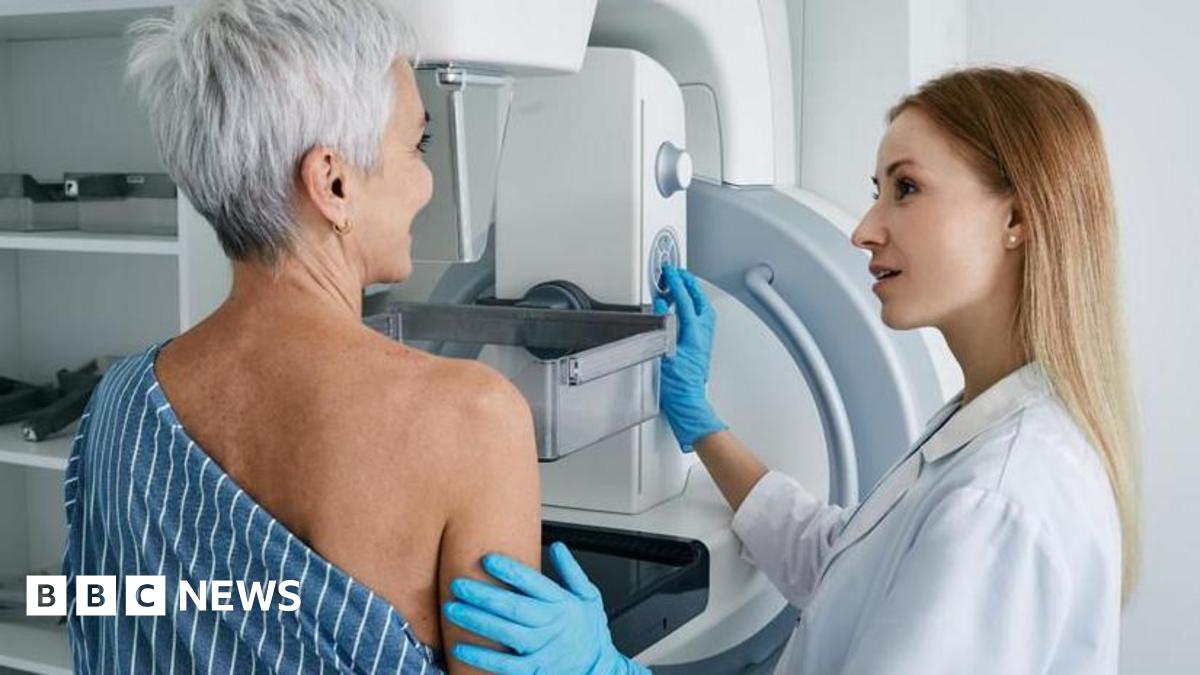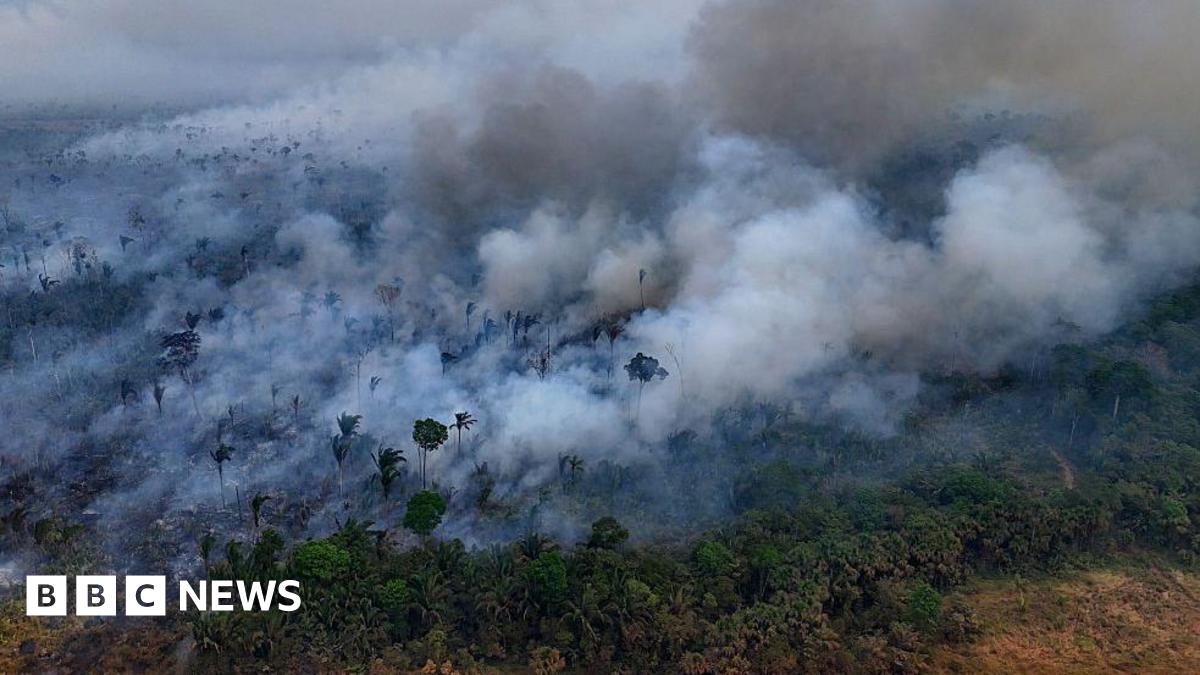Dense Breasts And Cancer Risk: Call For Increased NHS Screening

Welcome to your ultimate source for breaking news, trending updates, and in-depth stories from around the world. Whether it's politics, technology, entertainment, sports, or lifestyle, we bring you real-time updates that keep you informed and ahead of the curve.
Our team works tirelessly to ensure you never miss a moment. From the latest developments in global events to the most talked-about topics on social media, our news platform is designed to deliver accurate and timely information, all in one place.
Stay in the know and join thousands of readers who trust us for reliable, up-to-date content. Explore our expertly curated articles and dive deeper into the stories that matter to you. Visit Best Website now and be part of the conversation. Don't miss out on the headlines that shape our world!
Table of Contents
Dense Breasts and Cancer Risk: The Urgent Call for Increased NHS Screening
Introduction: The link between dense breast tissue and increased breast cancer risk is well-established, yet many women remain unaware of this crucial connection. This raises concerns about the adequacy of current NHS breast screening programs, prompting calls for significant improvements and increased awareness. For women with dense breasts, understanding this increased risk and advocating for better screening is paramount.
Dense breast tissue, characterized by a higher proportion of glandular and fibrous tissue compared to fatty tissue, makes it harder for mammograms to detect cancerous tumors. This means that even with regular screenings, cancers can be missed, leading to later diagnoses and potentially poorer prognoses. This article explores the implications of dense breasts, the current limitations of NHS breast screening, and the growing movement advocating for improved detection methods and support for affected women.
Understanding Dense Breasts and Their Impact
Mammograms use X-rays to identify abnormalities in breast tissue. However, dense breast tissue appears white on a mammogram, similar to the appearance of tumors. This "masking effect" significantly reduces the sensitivity of mammograms in women with dense breasts, potentially leading to false negatives. Studies consistently demonstrate a statistically significant increase in breast cancer risk for women with dense breasts, even after adjusting for other risk factors.
- Higher risk: Women with extremely dense breasts have a significantly higher risk of developing breast cancer.
- Delayed diagnosis: The masking effect of dense breasts can lead to delayed diagnosis, impacting treatment outcomes.
- Increased mortality risk: While not an inevitable outcome, delayed diagnosis due to dense breast tissue can unfortunately increase mortality risk.
The Limitations of Current NHS Breast Screening
While the NHS breast screening program is a vital tool in early detection, its limitations regarding dense breasts are becoming increasingly apparent. The standard mammogram, while effective for many, isn't optimized for women with dense breast tissue. Currently, the NHS generally doesn't routinely inform women about the density of their breasts or the increased risk this poses.
This lack of information prevents women from making informed decisions about their healthcare and exploring additional screening options. Many advocate for the routine notification of breast density following mammograms, allowing women to discuss further screening possibilities with their healthcare providers.
The Call for Improved NHS Screening and Support
Advocacy groups and medical professionals are pushing for several improvements to the NHS breast screening program to address the challenges posed by dense breasts:
- Routine notification of breast density: Women should be informed of their breast density and its implications after every mammogram.
- Increased access to supplementary screening: Options like ultrasound and MRI scans, which are more effective in detecting cancers in dense breasts, should be more readily available to women identified as high-risk.
- Improved patient education: Greater awareness among both women and healthcare professionals is crucial to ensure early detection and appropriate management.
- Funding for research: Continued investment in research to develop better screening techniques tailored to dense breasts is essential.
What Women Can Do:
- Know your risk: Discuss your family history and breast density with your doctor.
- Advocate for yourself: If you have dense breasts, don't hesitate to ask your doctor about additional screening options.
- Stay informed: Keep up-to-date on the latest research and developments in breast cancer screening.
The increased risk associated with dense breasts highlights the urgent need for a more comprehensive and sensitive breast screening program within the NHS. By raising awareness and advocating for change, we can improve early detection rates and ultimately save lives. This issue demands immediate attention to ensure all women have access to the best possible breast cancer screening, regardless of breast density. The future of breast cancer prevention relies on it.

Thank you for visiting our website, your trusted source for the latest updates and in-depth coverage on Dense Breasts And Cancer Risk: Call For Increased NHS Screening. We're committed to keeping you informed with timely and accurate information to meet your curiosity and needs.
If you have any questions, suggestions, or feedback, we'd love to hear from you. Your insights are valuable to us and help us improve to serve you better. Feel free to reach out through our contact page.
Don't forget to bookmark our website and check back regularly for the latest headlines and trending topics. See you next time, and thank you for being part of our growing community!
Featured Posts
-
 Rising Temperatures Record Fires The Devastating Impact On Tropical Forests
May 23, 2025
Rising Temperatures Record Fires The Devastating Impact On Tropical Forests
May 23, 2025 -
 Police Make Arrest In Attack On 90 Year Old At Orlando Senior Housing
May 23, 2025
Police Make Arrest In Attack On 90 Year Old At Orlando Senior Housing
May 23, 2025 -
 New Apple Offer Free Upgrade Available For I Phone 13 Users
May 23, 2025
New Apple Offer Free Upgrade Available For I Phone 13 Users
May 23, 2025 -
 New Features For I Phone 13 Apples Free Software Update Is Live
May 23, 2025
New Features For I Phone 13 Apples Free Software Update Is Live
May 23, 2025 -
 Once Upon A Time In Hollywood First In Quentin Tarantinos New Making Of Book Series
May 23, 2025
Once Upon A Time In Hollywood First In Quentin Tarantinos New Making Of Book Series
May 23, 2025
Latest Posts
-
 Can Democrats Replicate Joe Rogans Success To Reach Wider Audiences
May 24, 2025
Can Democrats Replicate Joe Rogans Success To Reach Wider Audiences
May 24, 2025 -
 I Os 18 5 I Phone Setup Six Immediate Steps You Shouldnt Skip
May 24, 2025
I Os 18 5 I Phone Setup Six Immediate Steps You Shouldnt Skip
May 24, 2025 -
 Diddy Trial Update Prosecutors Use Expert Witness To Corroborate Abuse Allegations
May 24, 2025
Diddy Trial Update Prosecutors Use Expert Witness To Corroborate Abuse Allegations
May 24, 2025 -
 Melania Trumps Memoir Ai Narrated Autobiography Ushers In New Era Of Publishing
May 24, 2025
Melania Trumps Memoir Ai Narrated Autobiography Ushers In New Era Of Publishing
May 24, 2025 -
 Pedro Pascal Quotes Pride And Prejudice Captivates Chris Evans And Us
May 24, 2025
Pedro Pascal Quotes Pride And Prejudice Captivates Chris Evans And Us
May 24, 2025
